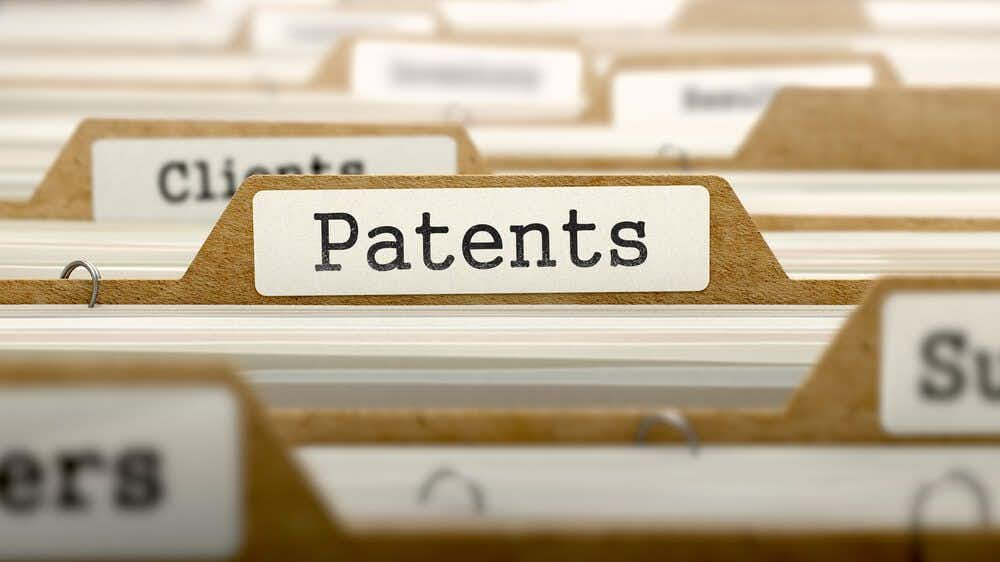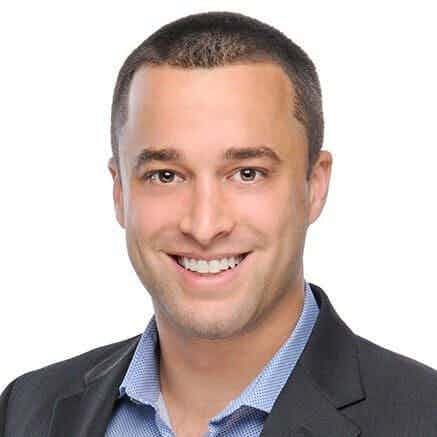Case: Sundance, Inc. v. Demonte Fabricating Ltd., 550 F.3d 1356 (Fed. Cir. 2008)
Background: Plaintiffs-Cross Appellants Sundance, Inc. and Merlot Tarpaulin and Sidekit Manufacturing Co., Inc. (collectively, Sundance) sued Defendants-Appellants DeMonte Fabricating Ltd. and Quick Draw Tarpaulin Systems, Inc. (collectively, DeMonte) in the United States District Court for the Eastern District of Michigan for infringement of claim 1 of U.S. Patent No. 5,026,109 (the ‘109 patent).
The ‘109 patent is directed to retractable segmented covering systems for “almost any structure or container,” such as truck trailers, swimming pools, porches, and patios. Independent claim 1, the only asserted claim in this suit, reads as follows:
‘A retractable segmented cover system used with a truck trailer comprising a plurality of flexible cover sections with a plurality of substantially parallel supporting bows spaced therebetween and a drive assembly, wherein each cover section is detachably connected between substantially parallel supporting bows, the bows are slideably supported on the truck trailer and at least one bow is fixedly connected to the drive assembly such that the cover system can be extended or retracted by the drive assembly and wherein a cover section can be removed from the cover system independent of the other cover sections.’
At trial, relevant to this appeal, DeMonte presented two prior art references to the jury as a basis for a determination of obviousness–U.S. Patent Nos. 4,189,178 (Cramaro) and 3,415,260 (Hall). Cramaro disclosed a retractable tarpaulin cover system for use in trucks. The parties agreed that the difference between the cover system disclosed in claim 1 of the ‘109 patent and the Cramaro cover system is that Cramaro did not include “segmented tarps.” The parties further agreed that Hall disclosed a cover system divided into a number of “flexible screen members.”. Hall indicated that its system “may be used as a truck cover.” Demonte’s patent law expert, Daniel Bliss, opined that one of ordinary skill in the art would be motivated to combine Cramaro and Hall. The jury determined that claim 1 of the ‘109 patent was obvious.
Expert Witness: Mr. Daniel Bliss served as DeMont’s patent law expert. Mr. Bliss’s pre-trial expert report detailed his years of experience as a patent/IP attorney, including preparation of opinions on invalidity and knowledge of USPTO practice and procedure. The report did not present Mr. Bliss as having any personal technical experience, or skills in the field of mechanics, much less covers.
Although Mr. Bliss also stated in his report that he has experience in “the vehicle field,” support for this statement was only in the context of preparing and prosecuting patent applications for inventions in the vehicle field and in testifying “as an expert on patent law and patent office procedure” in connection with a separate suit also related to the vehicle field. Nor did his appended curriculum vitae reveal any relevant technical experience with vehicle or other cover systems. His report opined that the level of ordinary skill in the art “would be someone with a high school education and one or more years of experience in the field of tarps or covers”.
Daubert Challenge:
Sundance argued that Mr. Bliss lacked “appropriate technical background in the field of the invention.” Sundance also argued that Mr. Bliss was not qualified to testify about “his interpretation of the law governing invalidity, infringement,” or ultimate legal conclusions.
Sundance argued that “[a]lthough DeMonte refers to Mr. Bliss as a technical expert, he has no technical experience in the field of truck[s] or tarps and practiced as an engineer for but a year and a half in unrelated areas. He was not qualified at trial as a technical expert.”
Opposing the motion, DeMonte argued that Mr. Bliss was qualified because he “is a patent attorney with extensive experience in patent law and procedure,” and that his testimony was admissible because courts may allow patent law experts to testify on “general procedures involved in the patent application process.”
DeMonte further argued that Mr. Bliss’s testimony should be admitted even though “Mr. Bliss may not have experience specifically with segmented tarpaulin systems” because his qualifications were “an appropriate subject for cross examination, but would go more to the weight to be given his testimony.”
Conclusion:
The Court concluded that the district court abused its discretion in denying Sundance’s Daubert motion to exclude the testimony of Mr. Bliss. The Court found that Mr. Bliss was not qualified to testify as an expert witness on the issues of infringement or validity. These issues are supposed to be analyzed in great part from the perspective of a person of ordinary skill in the art, and testimony explaining the technical evidence from that perspective may be of great utility to the factfinder. Yet, despite the absence of any suggestion of relevant technical expertise, Mr. Bliss offered expert testimony on several issues which were exclusively from the perspective of ordinary skill in the art. In elaborate technical detail, Mr. Bliss opined on how the disclosed invention, accused system, and prior art operate, including his opinions as to the noninfringement and invalidity of claim 1 of the ‘109 patent.
DeMonte failed to explain how Mr. Bliss possessed the relevant expertise in the pertinent art. Mr. Bliss had no experience whatsoever in “the field of tarps or covers.” Nor did DeMonte purport that Mr. Bliss’s experience with engines and the like was sufficiently related to covers. Mr. Bliss was not “qualified as an expert by knowledge, skill, experience, training, or education” in the pertinent art; the Court therefore failed to see how he could “assist the trier of fact to understand the evidence or to determine a fact in issue.”
Unless a patent lawyer is also a qualified technical expert, his testimony on these kinds of technical issues is improper and thus inadmissible. Because Mr. Bliss was never offered as a technical expert, and in fact was not qualified as a technical expert, it was an abuse of discretion for the district court to permit him to testify as an expert on the issues of non-infringement or invalidity. The Court understood that lawyers are often qualified to testify as technical experts, but such a qualification must derive from a lawyer’s technical qualifications in the pertinent art.
The Court did not suggest that being a person of ordinary skill in the art automatically entitles a witness to testify as an expert on these or other matters. Its opinion should not be read as suggesting that Rule 702 requires a witness to possess something more than ordinary skill in the art to testify as an expert. A witness possessing merely ordinary skill will often be qualified to present expert testimony both in patent trials and more generally.
In this case though, DeMonte failed to demonstrate any possible relevancy or reliability of Mr. Bliss’s testimony as to technical matters in light of his lack of relevant technical expertise. Mr. Bliss lacked the necessary expertise to be of assistance to the court or the jury on the technical aspects of this case. The court must exclude expert testimony that is not reliable and not specialized, and which invades the province of the jury to find facts and that of the court to make ultimate legal conclusions. Allowing a patent law expert without any technical expertise to testify on the issues of infringement and validity would have amounted to nothing more than advocacy from the witness stand.
About the author
Jared Firestone, J.D.
Jared Firestone, J.D., is a multi-disciplinary attorney with expertise in a range of legal areas. He founded and operated Firestone Law Firm PA in Hollywood, Florida, and worked as an Associate Attorney at Gustman Law P.C. in New York. His practice areas include Personal Injury, Criminal Defense, Medical Malpractice, Trusts & Wills, Civil and Commercial Litigation, Family Law, Real Estate, and Immigration. Additionally, he has experience in real estate, focusing on residential property in the Miami/Fort Lauderdale areas. Firestone also served as a pro bono Mediator at the Benjamin N. Cardozo School of Law Divorce Mediation Clinic. He holds a J.D. from Cardozo School of Law, where he honed skills in E-Discovery, Divorce Mediation, and Legal Writing, and a Bachelor’s degree in Philosophy from Tulane University.



